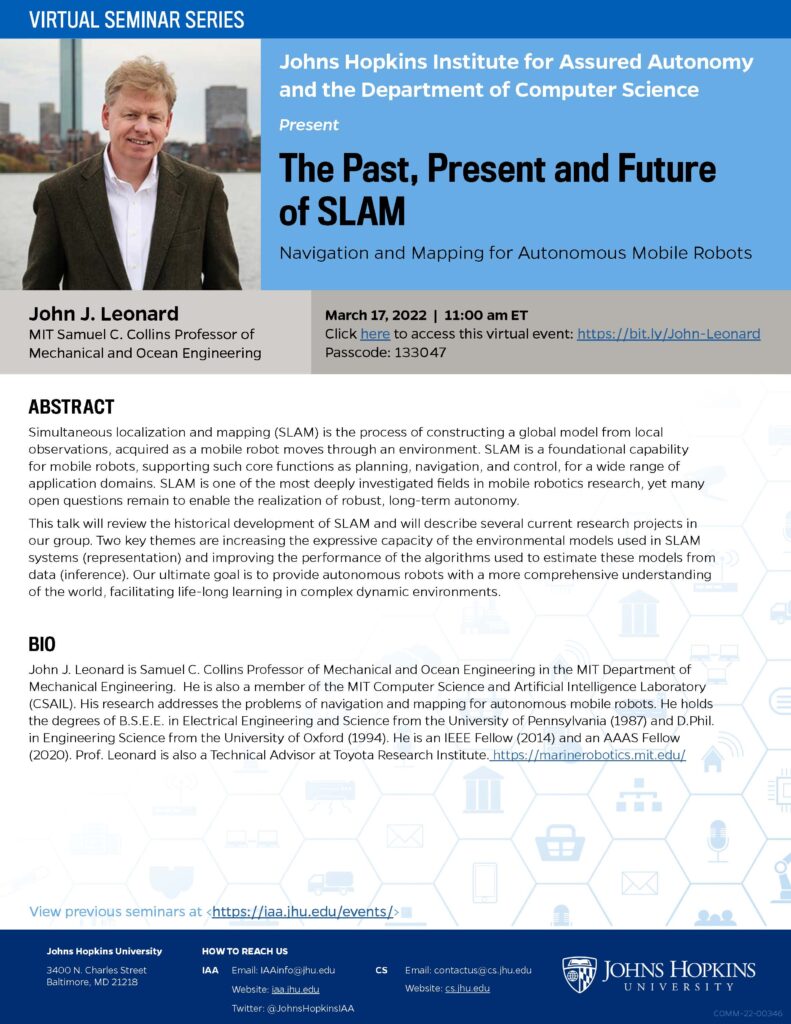Abstract: Simultaneous localization and mapping (SLAM) is the process of constructing a global model from local observations, acquired as a mobile robot moves through an environment. SLAM is a foundational capability for mobile robots, supporting such core functions as planning, navigation, and control, for a wide range of application domains. SLAM is one of the most deeply investigated fields in mobile robotics research, yet many open questions remain to enable the realization of robust, long-term autonomy. This talk will review the historical development of SLAM and will describe several current research projects in our group. Two key themes are increasing the expressive capacity of the environmental models used in SLAM systems (representation) and improving the performance of the algorithms used to estimate these models from data (inference). Our ultimate goal is to provide autonomous robots with a more comprehensive understanding of the world, facilitating life-long learning in complex dynamic environments.
Bio: John J. Leonard is Samuel C. Collins Professor of Mechanical and Ocean Engineering in the MIT Department of Mechanical Engineering. He is also a member of the MIT Computer Science and Artificial Intelligence Laboratory (CSAIL). His research addresses the problems of navigation and mapping for autonomous mobile robots. He holds the degrees of B.S.E.E. in Electrical Engineering and Science from the University of Pennsylvania (1987) and D.Phil. in Engineering Science from the University of Oxford (1994). He is an IEEE Fellow (2014) and an AAAS Fellow
(2020). Prof. Leonard is also a Technical Advisor at Toyota Research Institute. https://marinerobotics.mit.edu/
